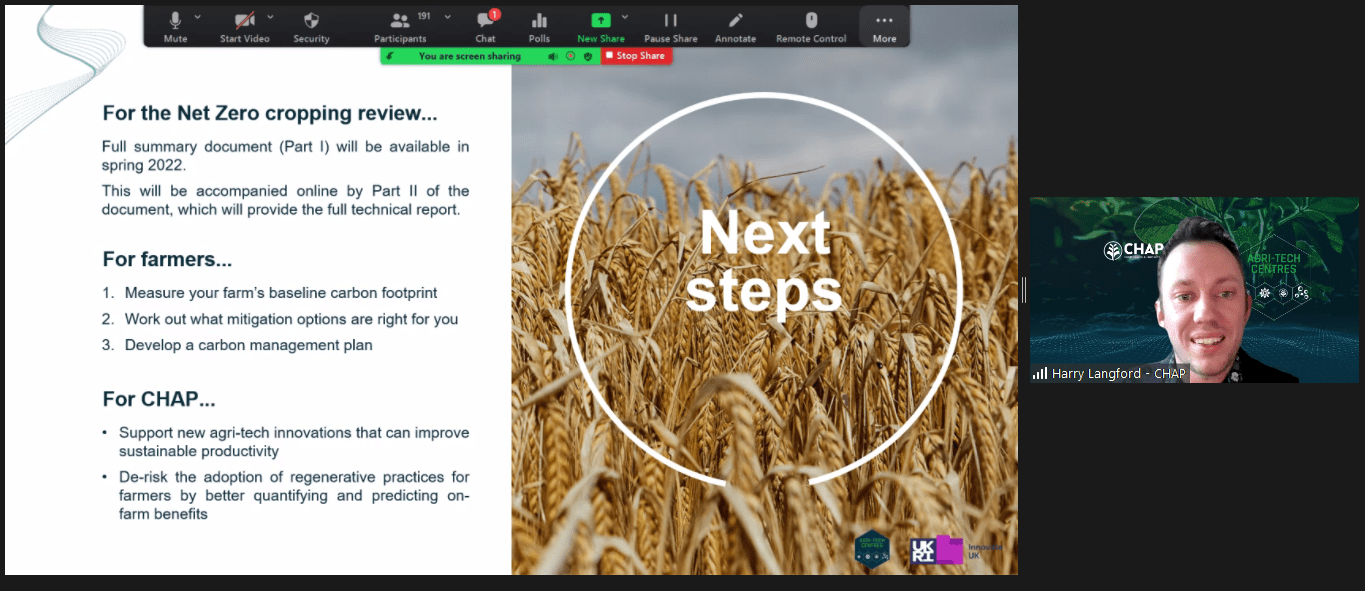CHAP’s Innovation Network Lead, Dr Harry Langford, took to the online stage as part of a fringe session sponsored by the four UK Agri-Tech Centres. He was joined by representatives from Agrimetrics, Agri-EPI Centre and CIEL.
The online session aimed to showcase the work of the centres in supporting farming innovation that improves efficiency, productivity, profitability and sustainability.
Dr Langford said: “Farming and wider land management are fundamental to achieving a net zero economy and stabilising global temperatures.
“The report has been created as a means of assisting the sector to understand the full extent of emissions generated from the production of key UK arable and horticulture crops.
“This can then be used as a benchmark and reference point, and to demonstrate the potential that lies ahead in terms of mitigation practices, and opportunities to improve our sustainable credentials.
“It also showcases examples where best practice is already taking place and where UK agriculture is taking the lead compared to our international counterparts.”
A summary of the report, which was produced by CHAP, the National Farmers’ Union (NFU) and the Agricultural and Horticulture Development Board (AHDB) in conjunction with ADAS, is to be officially launched in spring.
More than 200 delegates attended the fringe session, which was part of the wider OFC entitled ‘Routes to Resilience.’ The Agri-Tech Centres were silver sponsors of the event.
For more information about this event, visit OFC. See also Today’s research is tomorrow’s crop protection.
CHAP’s Field Scale Precision Equipment at Newcastle University and at Stockbridge Technology Centre is playing an important part in the work to maintain and protect soils. For more information, read our overview , or view our case studies Precision Approaches for Sustainable Soils and Using Roots to Bioengineer Soils.
If you have any questions about CHAP or are interested in working with us on a specific project, then please send us an email using the enquiries form at the bottom of our homepage.












